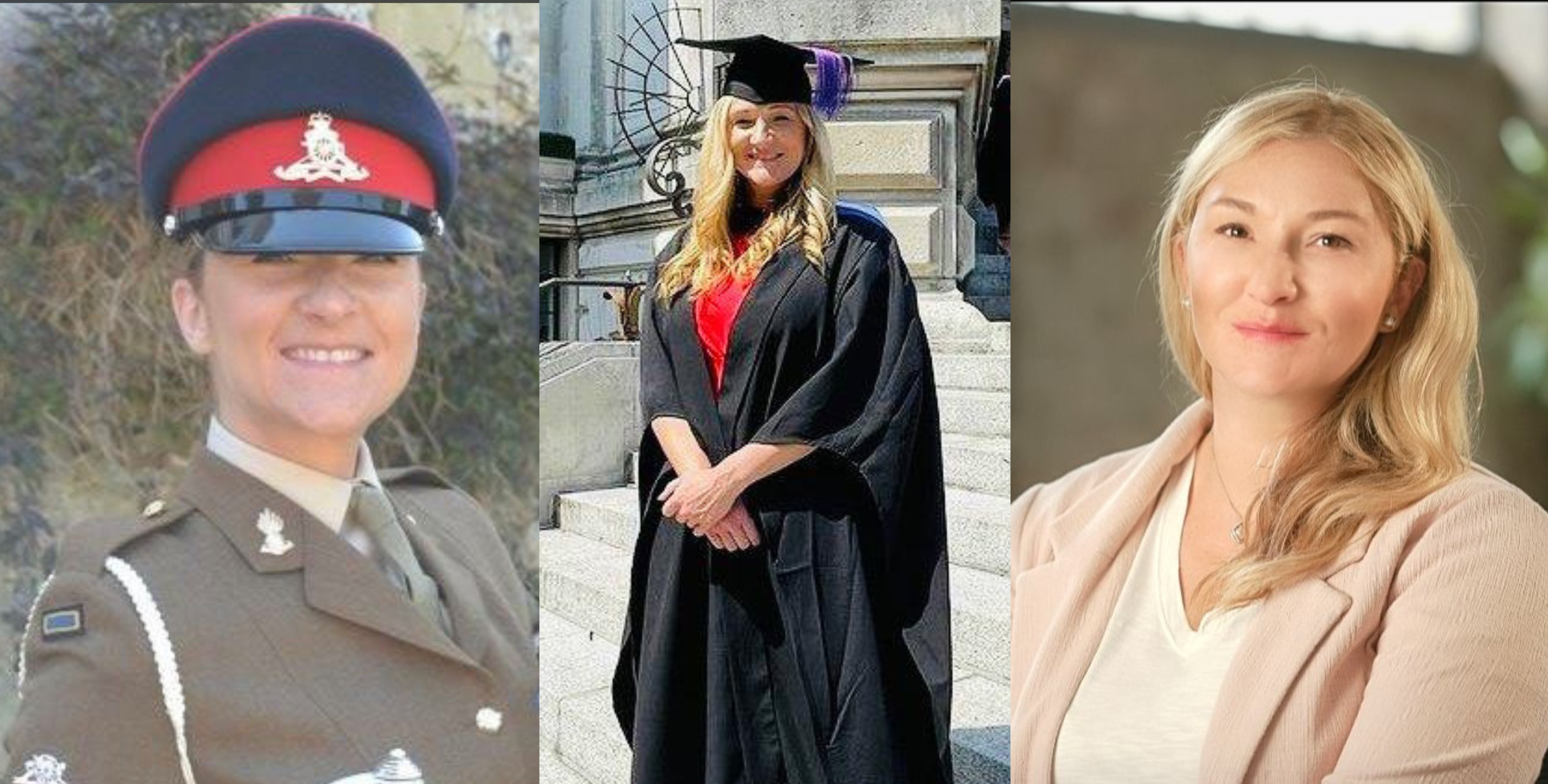Marginalised to Empowered - What Do You Represent?
Ria Jackson, Guest Editor, Ruddy Nice
In the previous article
Marginalised to Empowered – What Do You Represent? – Part 1
We discussed what might lead to women believing they are a minority. When in fact, a more accurate assertion is that women are underrepresented in many spheres of life. And that by changing our language, we begin to change the narrative and perceptions of our limitations.
How might change begin?
1. Perception
Perception has power and therefore plays a significant role in shaping societal attitudes. When women perceive themselves as a minority, they inadvertently reinforce the idea of their marginalised status. This perception leads to a diminished sense of agency and can discourage women from asserting themselves, self-promoting, standing up for their own rights and essentially not representing. Therefore, remaining invisible. To break free from this mindset, it is crucial for women to recognise their numerical strength and the potential they hold as a collective force.
It is much easier to change our own perceptions than that of a whole society.
Nevertheless, when we modify our own perspectives, it inadvertently influences the collective consciousness of society. For example:
By initiating a small shift in our language and refraining from using phrases like ‘Working Mum,’ ‘Women Engineers’, or ‘Women Veterans’ that put an emphasis on gender, we can promote the cessation of self-marginalisation. This, in turn, paves the way for others to embrace a similar approach.
Whether it is in politics, boardrooms, or any other field, women should assert their presence and showcase their capabilities to debunk the myth of their minority status.
2. Visibility
As mentioned earlier, visibility plays a crucial role in addressing the misconception of women as a minority. Although women may not always have prominent representation in certain fields like STEM, our absence does not define us as a minority.
By actively seeking opportunities to be visible and heard, women can challenge societal norms and demand equal representation. When women from diverse backgrounds create platforms to share their stories and perspectives, it enriches the collective narrative of womanhood, showcasing the complexities, strengths, and unique experiences of each individual.
The pursuit of representation has been a longstanding battle for women. However, in our modern world, we have a powerful arsenal of tools at our disposal that can lead us to victory. One of the most potent, simple, accessible, and importantly, free weapons we all possess is social media.
Harness its power.
When women are portrayed accurately and authentically in media, politics, business, and other spheres, it fosters a sense of belonging and validation for women from all walks of life.
It cultivates an inclusive culture within society and normalizes the idea that women have the freedom to pursue their aspirations. This sends an immensely powerful global message that women can and do achieve anything they set their minds to.
3. Collectivism
To overcome the perception of being a minority, women need to address not only their own individual mindsets, ingrained biases, and self-imposed limitations, but also come together and support one another.
Women should actively share their personal stories, contributing to the celebration and recognition of the diverse tapestry of womanhood, while also offering support for each other’s individual journeys. By acknowledging that their own unique representations contribute to a more inclusive and diverse world, women can foster a sense of unity.
It is essential for women to stand together and celebrate each other’s successes, avoiding competition and comparison. Women should strive to create a collaborative platform of #HypeWomen, building strong networks and communities that promote solidarity. Through these networks, women can amplify their voices and genuinely influence change.
Solidarity allows women to collaborate, share experiences, and learn from one another, ultimately strengthening their collective power. Through unified action, women can dismantle gender biases and foster lasting change across various sectors. We are #StrongerTogether.
4. Narrative
Changing and controlling the narrative is another crucial step towards the deconstruction of the minority mindset.
Women should challenge stereotypes and biases that portray them as lesser or subordinate. By emphasising and representing their achievements, leadership qualities, and contributions to society, women can redefine their place in the public consciousness.
I would be remiss to not emphasis this further and highlight that it’s essential to note that representation is not a one-size-fits-all concept. Individuals cannot be expected to represent an entire gender; instead, they should aim to represent their authentic selves. Remember women make up over half the population, therefore when they share their stories be that of an entrepreneur, woman in defence, veteran, stay at home Mum, PA, writer, rock star, or window cleaner, they shape the narrative on what is the ‘norm’ for their gender.
Women have the power as a collective to change societies ideals on what their roles really are. Which is whatever they want them to be.
There is absolutely no preferred, generic, or standard pathway in life, there are no timescales on life and there are zero markers to outline success.
5. The Ripple Effect
By presenting diverse representations of women, we break down the narrow expectations society has placed upon them. It encourages women to embrace their individuality and pursue their passions unapologetically.
Together we can and should help to close the gender gaps and this starts with you.
Be Accountable!
What do you represent?
And how do you present this to others?
References:
Exley, C. and Kessler, J. (2019) Why don’t women self-promote as much as men?, Harvard Business Review. Available at: https://hbr.org/2019/12/why-dont-women-self-promote-as-much-as-men (Accessed: 14 August 2023).
Agarwal, Dr.P. (2022) Not very likeable: Here is how bias is affecting women leaders, Forbes. Available at: https://www.forbes.com/sites/pragyaagarwaleurope/2018/10/23/not-very-likeable-here-is-how-bias-is-affecting-women-leaders/?sh=7d9145a9295f (Accessed: 14 August 2023).
Agarwal, Dr.P. (2021) Here is how unconscious bias holds women back, Forbes. Available at: https://www.forbes.com/sites/pragyaagarwaleurope/2018/12/17/here-is-how-unconscious-bias-holds-women-back/?sh=536570192d4f (Accessed: 14 August 2023).
Pikus, K. (2012) Identifying gender bias in college culture: Descriptive and prescriptive stereotypes, hostile and benevolent sexism, and cognitive justification, Scholarly Commons at Miami University. Available at: https://sc.lib.miamioh.edu/handle/2374.MDLC/12090 (Accessed: 14 August 2023).
Exley, C. and Kessler, J. (2019) The gender gap in self-promotion, NBER Working Paper Series. Available at: https://www.nber.org/system/files/working_papers/w26345/revisions/w26345.rev2.pdf?trk=public_post-text (Accessed: 14 August 2023).
Cant, E. (2022) Gender emotional double-standards: The double-bind bias and the impact on women’s career progression, HRZone. Available at: https://www.hrzone.com/perform/people/gender-emotional-double-standards-the-double-bind-bias-and-the-impact-on-womens (Accessed: 14 August 2023).
Mohr, T.S. (2021) Why women don’t apply for jobs unless they’re 100% qualified, Harvard Business Review. Available at: https://hbr.org/2014/08/why-women-dont-apply-for-jobs-unless-theyre-100-qualified#:~:text=You’ve%20probably%20heard%20the,Code%20and%20dozens%20of%20articles (Accessed: 14 August 2023).
Hannon, K. (2014) Are women too timid when they job search?, Forbes. Available at: https://www.forbes.com/sites/nextavenue/2014/09/11/are-women-too-timid-when-they-job-search/?sh=6afdacd7411d (Accessed: 14 August 2023).
Mohr, T.S. (2023) Why women struggle with self-promotion | Goop, goop. Available at: https://goop.com/wellness/career-money/why-women-struggle-with-self-promotion/ (Accessed: 14 August 2023).



